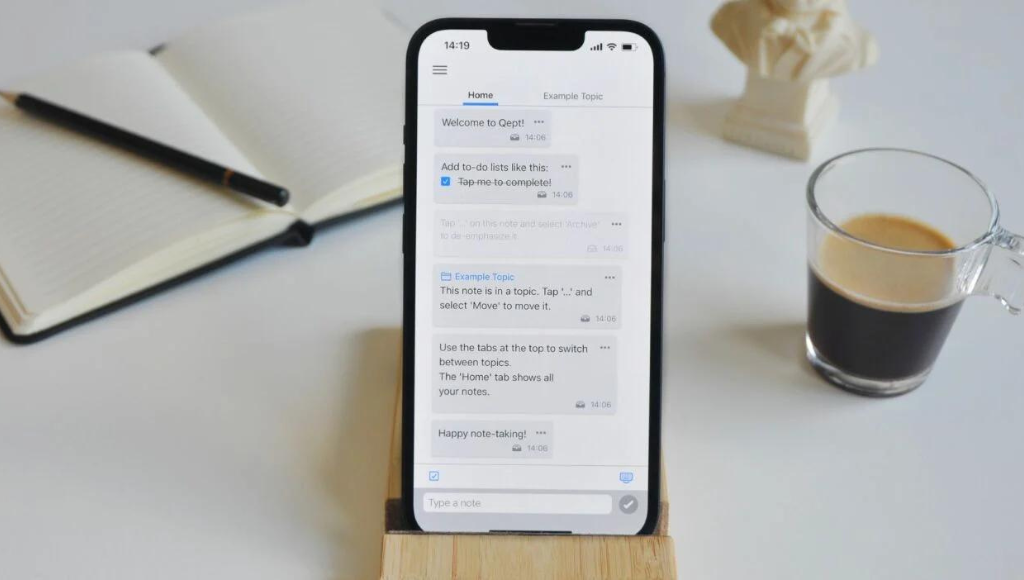In today’s digital age, it’s become quite common for people to use messaging apps as a quick way to send notes, ideas, or reminders to themselves. Recognizing this prevalent “DM-to-yourself” phenomenon seen in apps like WhatsApp, Signal, and Telegram, developer Willem de Beijer has crafted a fresh and straightforward iOS note-taking app called Qept.
De Beijer’s vision for Qept centers on enhancing the organization and editing aspects of note-taking, distinguishing it from the standard messaging app experience. Beyond this, the app offers a convenient platform for creating quick to-do lists, simplifying tasks like planning groceries or managing daily activities.
Much like any chat app, using Qept is as simple as typing out your note or thought and hitting “send.” An added perk is the handy checkmark icon located above the text box, making it effortless to transform your message into a checklist or to-do list. While you can assign a “Topic” to a note for improved organization, it’s entirely optional.
All notes, regardless of whether they have a designated topic, neatly populate the home timeline. Notably, users retain the ability to edit notes even after they’ve been sent to the timeline. De Beijer has also hinted at a forthcoming update that will allow users to either hide or collapse notes within a topic and easily toggle between displaying and concealing archived notes with a single tap.
In the coming weeks, Qept’s developer plans to introduce updates that will enhance its visual appeal and navigation, offer a filter for archived notes, provide the ability to add reminders to notes, and introduce bullet points as a formatting option. De Beijer’s ambitious roadmap includes releasing a Mac app within the year and incorporating features like note search, bulk editing capabilities, and support for rich links.
The app is available for free download, but for those who require more than three topics, there’s a subscription fee of $7.99 per month. De Beijer also has plans to introduce additional pro features, including support for images and files.
In terms of functionality, Qept shares similarities with Stashpad, which garnered $1.8 million in funding last year from notable figures such as Alex Solomon (CTO at PagerDuty), Will Larson (CTO at Calm), and key players from Postman, Loom, and Webflow. However, Stashpad primarily targets developers and imposes limitations on free usage, capping it at 50 notes across devices. Users seeking unlimited note synchronization and pro features can subscribe for $10 per month or $96 annually.
For users with basic note-taking needs who heavily rely on checklists to stay organized, Qept presents an attractive and cost-effective alternative, delivering the essential features without breaking the bank.






